Migration and energy, key issues in EU-South relations
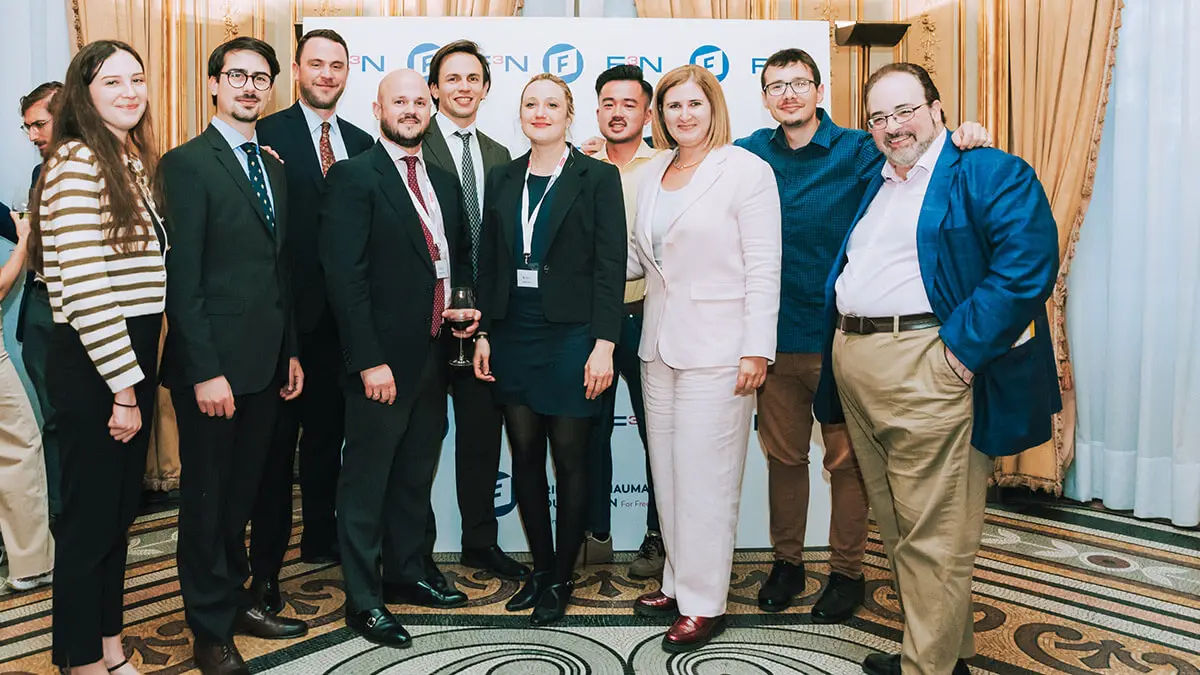
The Palacio de Linares was the venue for the conference "Europe and its Southern Neighbours: Strengthening Ties and Investments in a New Era", organised by the Friedrich Naumann Foundation and the Foundation for the Advancement of Freedom, which took place on the afternoon of 17 May.
Roxana Nicula, president of the latter foundation, welcomed the participants with a warning message: "Europe and the world are currently at a crossroads; we have to defend our economic and civil liberty so that our progress and peaceful way of life do not disappear under the threat of authoritarianism, over-regulation and taxation".
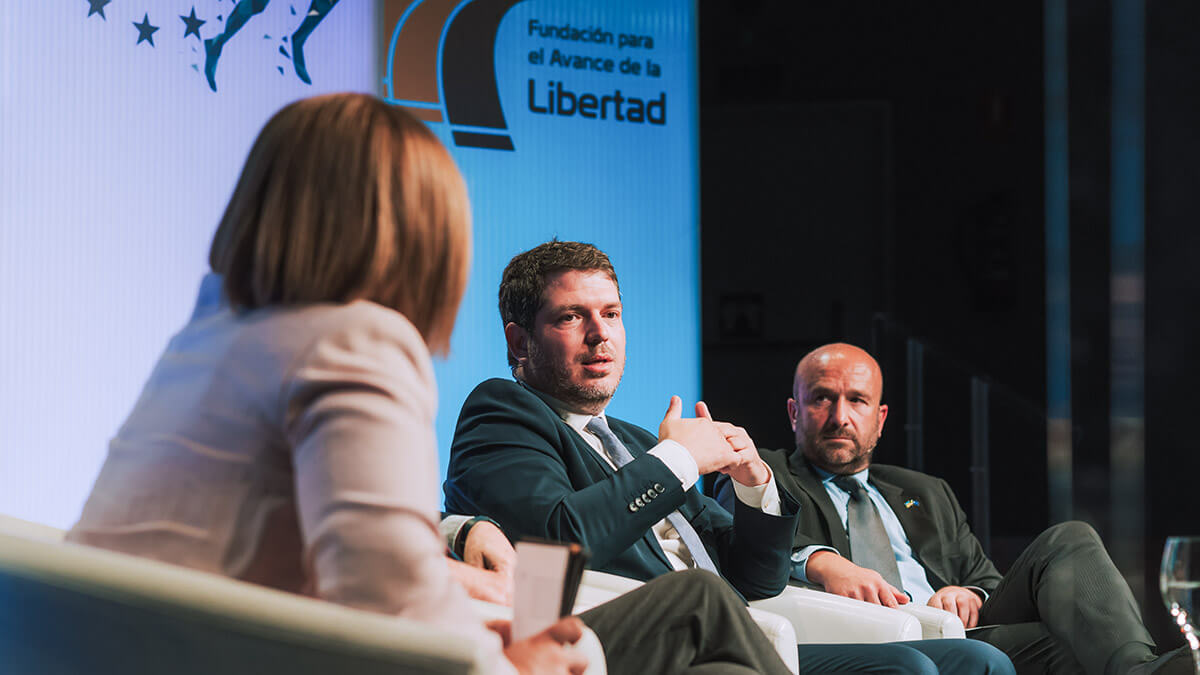
Karl-Heinz Paqué, President of the Naumann Foundation
The first event of the event was a video conference from Germany, given by the Chairman of the Board of the Friedrich Naumann Foundation. Karl-Heinz Paqué emphasised that the phenomenon of globalisation has slowed down in recent years.
Among the factors that have led to this phenomenon, the foundation's president cited the rise of protectionism towards Europe and China on the part of the US government, following the arrival of Donald Trump in the White House; the awareness that China was pursuing an imperialist policy towards Africa and Latin America in order to secure raw materials and dependence on these countries; the pandemic, which highlighted Europe's dependence on products from China; and Russia's invasion of Ukraine, which has led to a rise in energy and food prices around the world.
Regarding Europe's economic relations with its southern neighbours, Mr Paqué pointed out that African countries have benefited less from globalisation than other regions: "this must change in the future, Africa must be as successful in its integration into the world economy as the countries of East Asia have been over the last decades, because this would also be good for Europe".
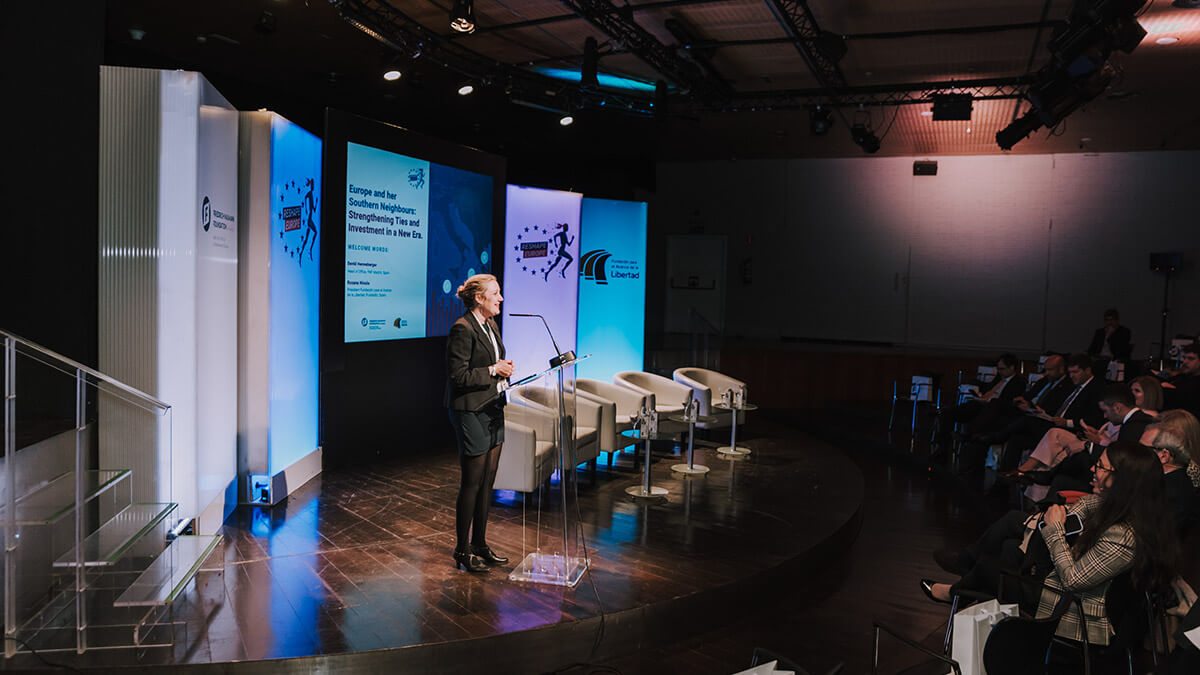
One of the keys to this would be immigration, which should compensate for demographic changes in an ageing Europe, which will lose millions of workers who represent the brains and backbone of European industrial engineering to retirement in the coming years. "However, these migrations may represent a brain drain that will jeopardise the future of Eastern European and African countries. Therefore, my proposal is to promote integration from a digital perspective, taking advantage of the digital skills and talent of young people in these countries and integrating them into the global chain," said Paqué, who pointed out that the establishment of the Spanish headquarters of the Naumann Foundation in Madrid aims to become a bridge between Europe and Africa to facilitate this organised migration".
Trade, investment and innovation
The first of two panel discussions held during the event addressed strategies for strengthening ties between Europe and its southern neighbours, particularly in the areas of trade, investment and innovation. Moderated by Jorge Galindo, ESADE's Assistant Director of Economic Policy, it featured the participation of Konstantin Kuhle, German MP for the FDP (Free Democratic Party); Inbal Orpaz, a strategic innovation consultant from Israel; María Parga, Honorary President of Alastria; and Philipp Bagus, Professor at the Universidad Rey Juan Carlos.
Kuhle pointed out that migration is crucial: "although it has been instrumentalised by authoritarian regimes, it is also the solution for an ageing Europe. It is the engine of job creation and innovation around the world".
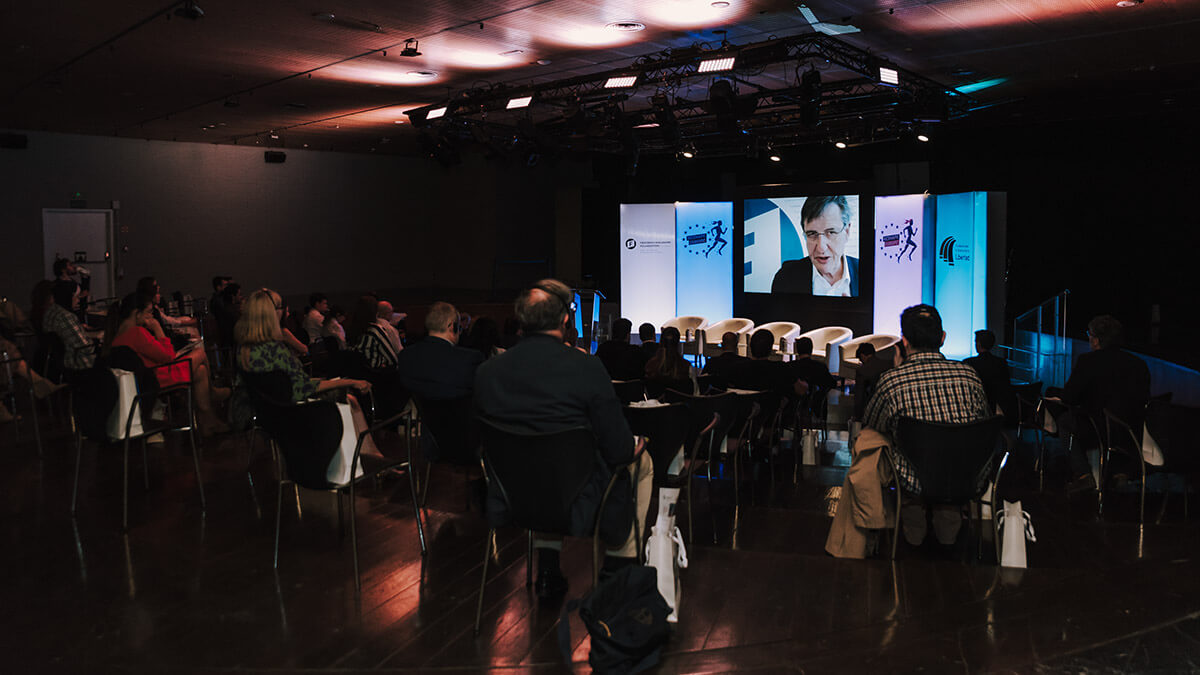
Inbal Orpaz shared some data on the importance of the technology sector in Israel, which can serve as an example for other countries: "the technology sector accounts for half of Israel's exports, represents almost 20% of GDP, employs 10% of the workforce, more than 400,000 people and contributes more than 25% of VAT. Its problem is the need for human resources, as Israel only uses local human capital for political reasons. On the other hand, most of the financing comes from foreign investors.
Maria Parga highlighted the role of blockchain technology in the technological transition: "The Internet has been a disruptive factor for many sectors and now blockchain is a disruptive factor for the economy in general. Artificial intelligence has the potential to take away our identity and value as human beings. However, the blockchain has the potential to be a link, it allows us to control our identity, which is now in the hands of companies".
Philipp Bagus insisted that "we need structural reforms in order to be an example for African countries, we need to reduce regulation and taxes. We should abolish customs tariffs: rules like the Common Agricultural Policy or the German Supply Chain Act are clear examples of hidden economic protectionism. We need to get rid of these kinds of regulations.
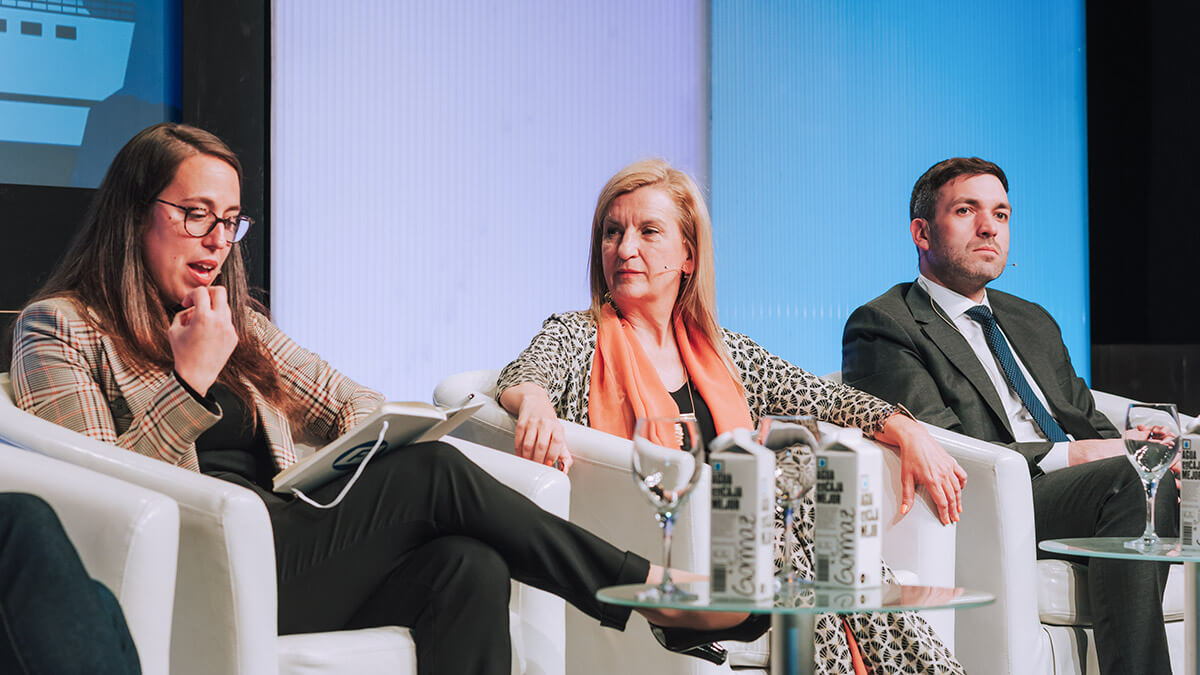
Energy
The second and final panel discussion focused on energy. Moderated by Roxana Nicula, the speakers were Gianbattista Rosa, Vice-President of the Adam Smith Society; Lior Schillat, former Director General of the Israeli Ministry of Energy; and Ricardo Silvestre, International Head of the Portuguese Social Liberal Movement.
Climate change and the EU's plans to address it were the focus of most of the debate. Gianbattista Rosa said that "climate change is a very visible issue and we should not underestimate it. But I am concerned about the approach of the European Union, which succeeded with the liberalisation of energy markets, but has now embarked on a dangerous path of interventionism. The European Green Pact is a great political and industrial initiative that can be very dangerous.
In the case of Italy, measures to finance household insulation have caused public spending to soar, "and if this is the model that the EU wants to implement by 2050, we must be careful," he concluded.
Lior Schillat underlined the strategic component of the fight against climate change: "We have a 30-year target, and it is a huge revolution, as big as the Industrial Revolution, which was not made in just four years. We have to be aware that there are going to be several energy crises, plural. And not everything that has happened in Europe is Russia's fault: the energy crisis had already begun before.
Ricardo Silvestre emphasised energy solidarity: "We have to be active in this respect in the European Union and with our partners in Africa and the Middle East. Energy can be a new unifying element between countries, as Covid-19 was in 2020. And the goal is to ensure our energy independence".








